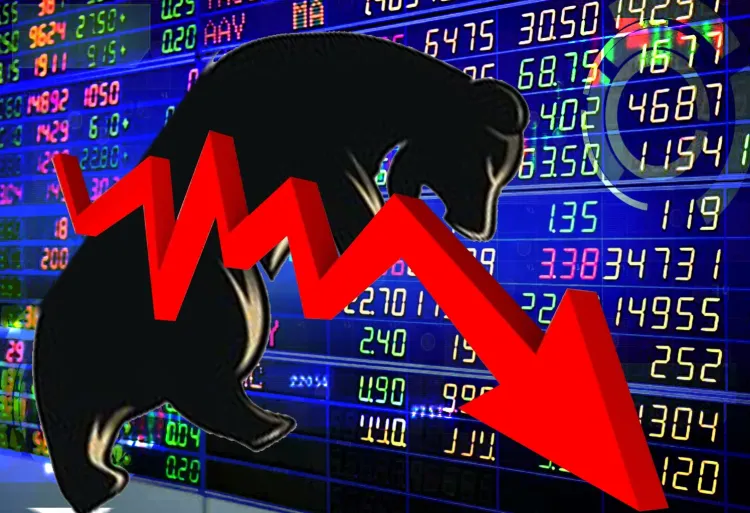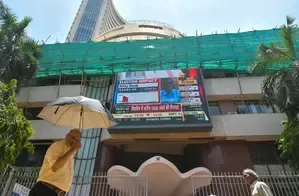Why Did Markets Close Lower Amid Mideast Tensions and Rising Oil Prices?

Synopsis
Key Takeaways
- The Indian stock markets closed lower due to geopolitical tensions.
- High crude oil prices are raising inflation concerns.
- The Sensex and Nifty indices experienced significant declines.
- Pharmaceutical and metal stocks faced the most considerable losses.
- Investors are awaiting the US Federal Reserve's interest rate decision.
Mumbai, June 17 (NationPress) The Indian stock markets wrapped up the trading day on a down note on Tuesday, influenced by a lackluster session. Escalating geopolitical tensions and rising concerns over inflation resulting from high crude oil prices kept investors apprehensive.
The cautious atmosphere followed a stern warning issued by US President Donald Trump to Iran, stating that Tehran should have pursued a nuclear agreement with the United States amid the ongoing conflicts in the Middle East.
Both benchmark indices began the day flat and experienced a brief uptick, but soon lost momentum as selling pressure mounted throughout the session.
The Sensex declined by 212.85 points, finishing at 81,583.30, after reaching a low of 81,427 during the day. The Nifty also fell by 93.10 points, closing at 24,853.40.
“The benchmark equity index faced moderate losses amid escalating risk of conflict in the Middle East ahead of the upcoming FOMC meeting,” remarked Vinod Nair from Geojit Investments Limited.
“This uncertainty has driven Brent crude prices higher—an unfavorable situation for India due to its heavy dependence on oil imports, which dampens earnings growth,” Nair added.
Broader markets mirrored this trend, with the Nifty Midcap100 and Nifty Smallcap100 indices slipping by 0.79% and 0.82%, respectively.
On a sectoral basis, only the IT sector managed to remain in positive territory, while the rest faced selling pressure across the board.
Pharmaceutical and metal stocks were the most significant losers, with the Nifty Pharma index down by 1.89% and the metal index falling 1.43%.
Other sectors, such as consumer durables, oil and gas, real estate, automotive, energy, FMCG, and media, also concluded with losses ranging up to 1%.
Among the 30 Sensex stocks, major laggards included Tata Motors, Sun Pharma, Bajaj Finance, IndusInd Bank, Bajaj Finserv, Eternal, and Nestle India.
Conversely, Tech Mahindra, Infosys, Asian Paints, Maruti Suzuki, NTPC, TCS, and HCL Tech supported the market with modest gains.
Sundar Kewat of Ashika Institutional Equity stated that rising crude oil prices are exacerbating inflation concerns in India, the world’s second-largest oil importer, further contributing to the negative sentiment.
“Investors are now focused on the US Federal Reserve’s interest rate decision on Wednesday, which could significantly impact global markets and influence investor sentiment moving forward,” Kewat added.
Meanwhile, the rupee weakened by 0.18 rupees to 86.22 as the rising risk sentiment linked to escalating Israel-Iran tensions weighed on the currency.









